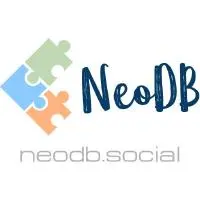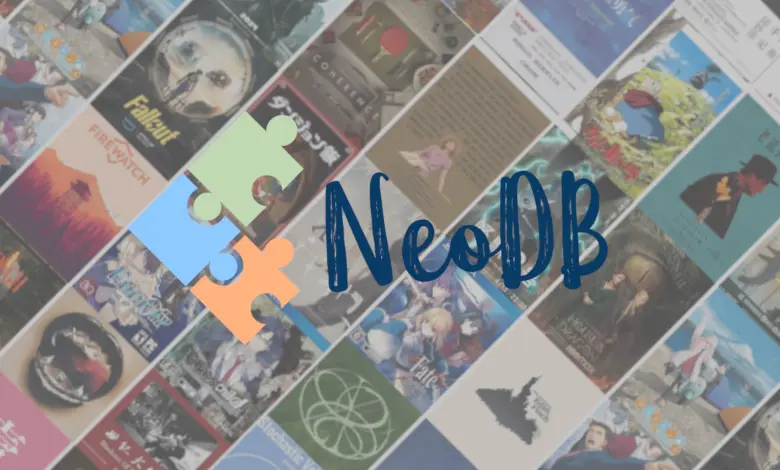- cross-posted to:
- fediverse
- [email protected]
- [email protected]
- cross-posted to:
- fediverse
- [email protected]
- [email protected]
cross-posted from: https://lemmy.ml/post/18372054
Today, we sat down and reviewed NeoDB, a Fediverse review system that lets you track books, movies, music, tv shows, games, podcasts, and more. There’s some really incredible ideas beneath the surface.
Because the real secret sauce here, the thing that makes NeoDB so compelling as a platform, is that you can just hook into existing systems to create search results. If someone writes a review for that result, hey, that review and the thing being reviewed can both be federated. You get a comprehensive catalogue of things most people know about, and an easy way to review or add them to your “To Read / To Watch / To Listen” list.
That’s what has me intrigued - it could hold data on action figures, trading cards, merchandise, food, furniture, places, etc. Everything you own or see or listen to, or everywhere you go could go in there. Oddly, it strikes me that everyone you know could also be in there but that feels like the start of a dystopian movie - Rate Me.
It’s why I think NeoDB is selling it short and I’d make the pitch for it to be called AllDB.
Surprisingly, there are far fewer integrations for data import than there are for search providers: right now, the platform only lets you import from Douban, Goodreads, Letterboxd, and RSS feeds for podcasts.
Yeah, this needs to be expanded, a lot. As I’ve argued, IMDb importing seems a no-brainer (it would be almost identical to the Letterboxd importer they already have).
I’m curious if you have any well formed thoughts on what the integration with group/community based platforms could look like?
AFAICT, the integration with microblogging is that actions/reviews get posted or cross posted to your main microblogging account (thanks to the nice sign-in implementation they have). And, presumably, posts/actions get federated too, by user presumably.
There isn’t any group based federation AFAICT, but it seems like an interesting possibility.
My quick thoughts (not being really familiar with neoDB):
- Cross posting could simply done to ones community of choice (any movies community on lemmy for instance)
- Any item could be a group/community with any action or review a post to that community
- Grouping could be more fuzzy and user driven, with items being “posts” and reviews/comments being comments to those posts
Oh, as the King of Over-thinking I have lots of thoughts. Not sure if they are well-formed.but that’s never stopped me before!
The Mastodon integration is fairly crude - it just posts your activity to your timeline. I think most people would want that turned off by default unless they are posting a review or promoting something they’ve made as it could overwhelm your account quite quickly.
Quite how other integrations work would depend on the service. I could see, for example, trailers (or other promotional videos) being integrated straight from PeerTube - in the future, I could see companies running their own Peertube instances.
I may be biased but I find the idea of Threadiverse integration more intriguing. I’ve mentioned it before but I miss the old IMDb message boards where even the most obscure film had somewhere you could discuss it without it being lost in the mix. So I’d like to see links from NeoDB to relevant threads, so NeoDB wouldn’t itself have to include some kind of commenting system beyond the reviews. You could, at least initially, add these by hand but that would be a pain quickly and I’d like to ultimately see a text box on the Threadiverse post page where you could add the name of the specific item and that would automatically generate the link back. It would also add a link from the post to the NeoDB entry. So it’s the 75th anniversary of the release of Orwell’s 1984. An article is released Looking back on it’s cultural impact and I post that to literature.cafe and/or [email protected]. One of the fields to fill in includes one for NeoDB, so I add it in there and that automatically creates a backlink in the comments section of NeoDB but also a link to the NeoDB entry from my post. That way the links go in both directions.
You could do this from micro-blogging services but it would tend to fill the comments with a lot less than useful links and I think the Threadiverse, along with blogs is the better format for such comment links.
I may be biased but I find the idea of Threadiverse integration more intriguing. … I miss the old IMDb message boards where even the most obscure film had somewhere you could discuss it without it being lost in the mix.
Totally with you on this! And as you discuss, sorting that out and how it federates seems to be the big challenge (and big promise).
Your idea seems great but I fear it would involve some protocol hacking and quickly run into compatibility issues (though I really don’t know).
I do wonder (and I may have suggested this already) if a good way to go would be to create an activitypub group/community for each item to which anyone can post. The AcitivityPub backend NeoDB is using may not support groups, in which case I’d wonder if using lemmy as the basis for groups somehow would be feasible.
I don’t know how well that’d work over federation though. Taking your example, you could cross post to the 1984 item and a general literature community, which should achieve the same thing (and perhaps more if cross post viewing were ever improved).
Subscribing to item-communities from a platform like lemmy wouldn’t make too much sense as there’d be too many and it’d be unwieldy … but that’s where the single sign on comes in … you’d just go a NeoDB instance for all of that to be well organised. Though perhaps NeoDB could generate aggregation multi-communities for multiple items and federate that out as a group, which would be pretty useful for the fediverse as a whole.
From a comment around here on NeoDb, from someone who’d asked the lead dev about lemmy support, they seemed interested in the idea of implementing groups somehow, so it may be fertile ground.



